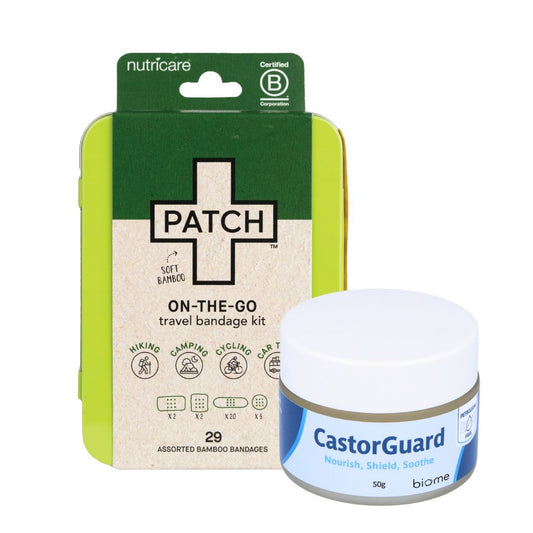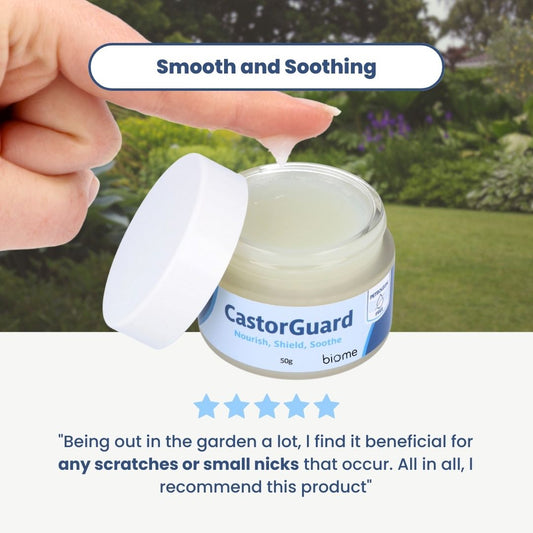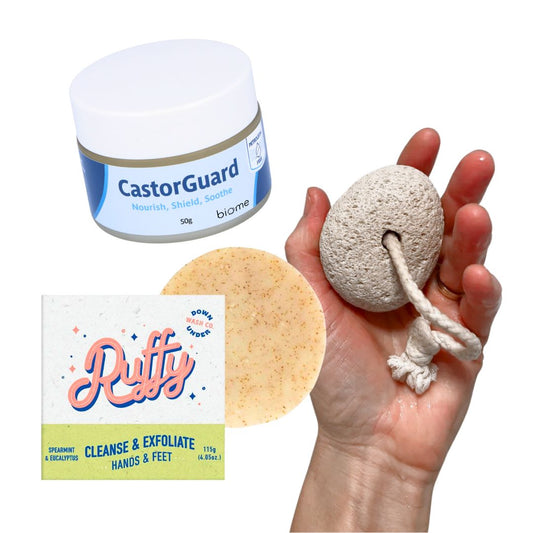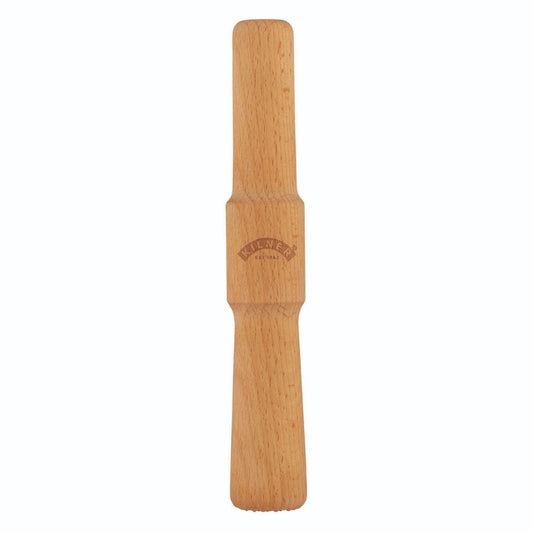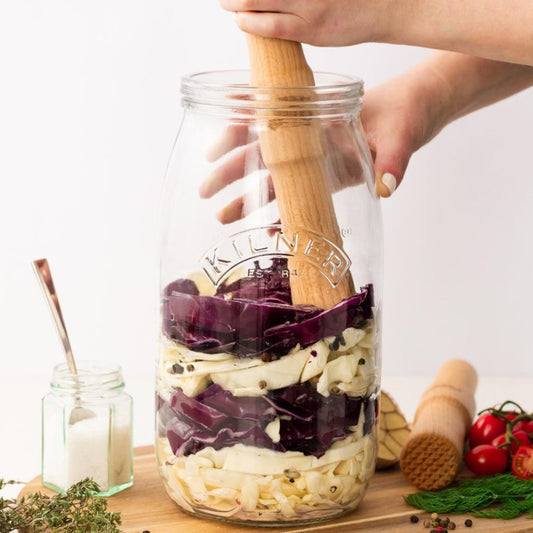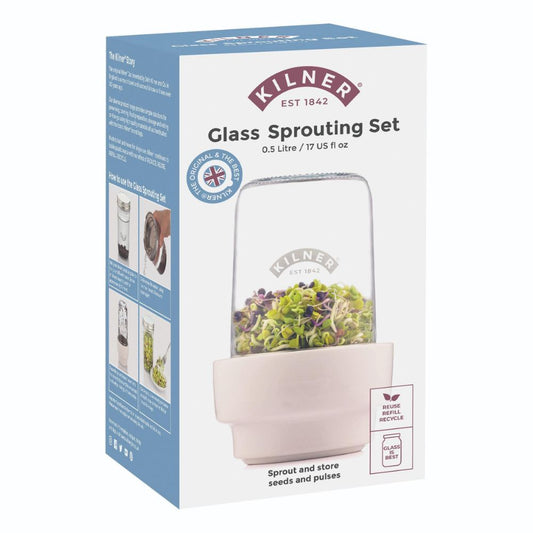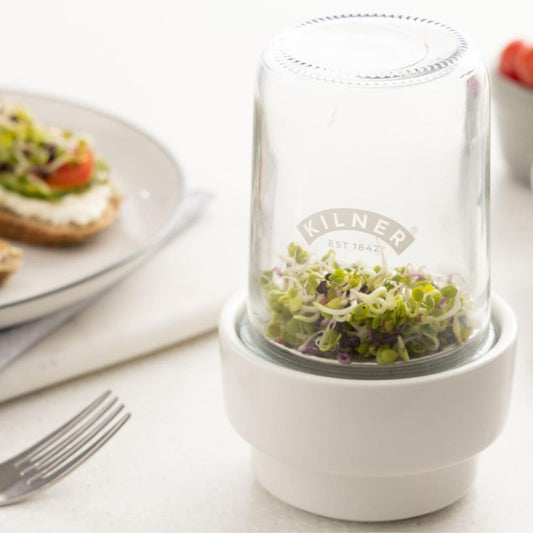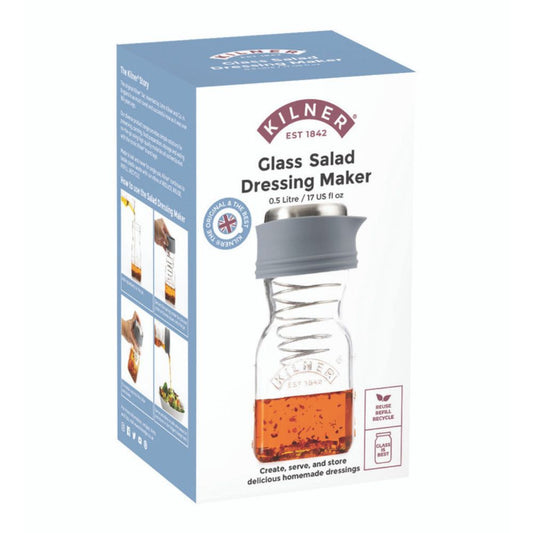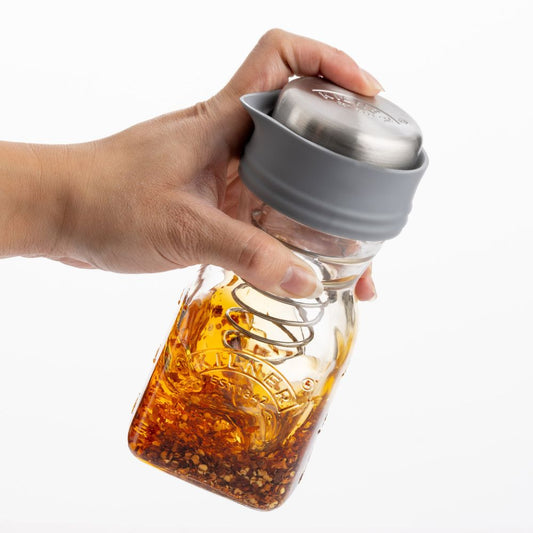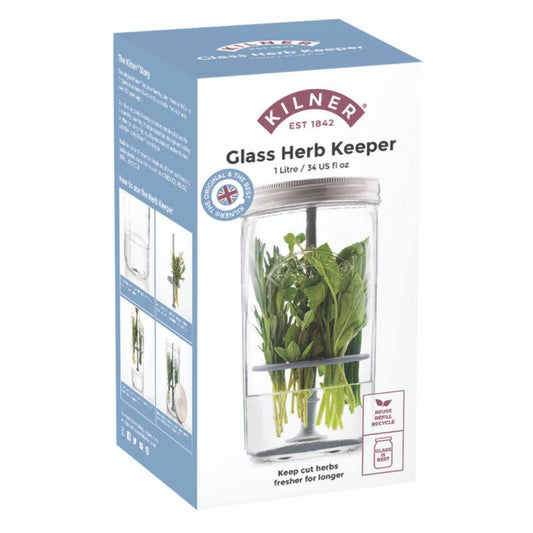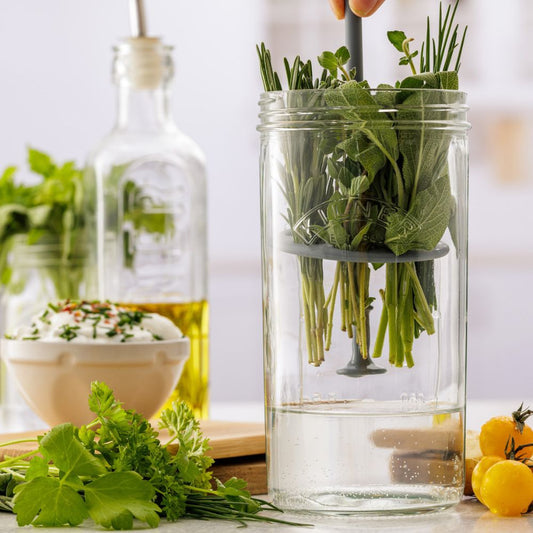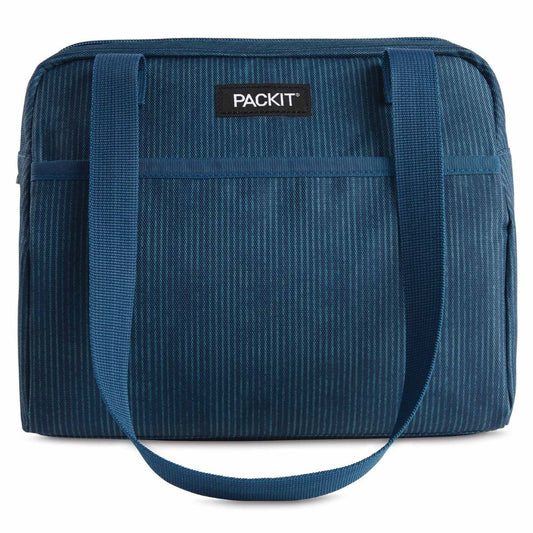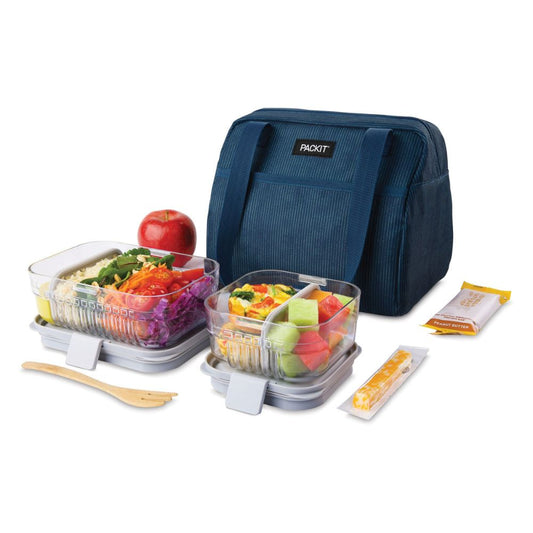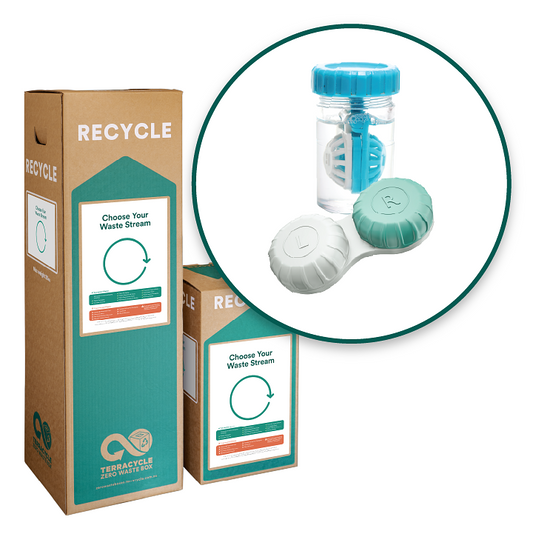
It's clear that we all care about the plastic trash that is polluting our planet, and as consumers we try to choose products that lessen plastic waste. But, it's easy to be misled by terms like biodegradable, compostable, or recycled, especially when it comes to single-use plastic bin bags and dog waste bags.
How can we be sure which are the most environmentally-friendly garbage bags? Is biodegradable the same as compostable? Are biodegradable bags really biodegradable? And, can I compost the bin bags at home?
This blog post delves into the different types of bin bags on the market. From petrochemical plastic bags to compostable, and ocean plastic bags. We aim to clear the murky waters around "eco-friendly" claims and guide you toward the most sustainable choices.
No bag at all
We want to suggest straight up that the most environmentally friendly option is no bag at all! Ideally, we would aim to manage household waste without the use of any bin liners, emphasising waste reduction, and proper sorting of recyclables and compostables. Composting your food scraps at home with a Bokashi, worm farm or compost heap is brilliant, and helps avoid the need for single use bags.
Even with the most eco of bin bag choices, the production of the bag still required non-renewable resources and energy, then carbon emissions to transport the materials around the world and to your home.
However, there are times that we need to use a bag, and on those occasions, you want to know: what are best bin bags for the environment?
1. Single Use Petrochemical Plastic Bags
Ubiquitous, single-use plastic bags are causing immense harm to nature. Produced from petroleum, a non-renewable resource, these bags are designed for short-term use, but persist in the environment for centuries, strangling turtles, marine life, birds and other animals, or slowly fragmenting into micro-plastics that wreak havoc on wildlife and ecosystems, and even enter the human food chain.
Single use petrochemical plastic bags offer no real environmental benefits; their utility lies solely in their convenience and low production cost. Many countries in the world, including Australia, have introduced bags on plastic bags of varying kinds.
Their production consumes precious non-renewable resources, and contributes to greenhouse gas emissions and global warming. Their use and disposal causes litter, and long-term environmental contamination, as they do not biodegrade but break down into harmful microplastics.
* Verdict: AVOID *
2. Degradable or Oxo-Degradable Bags
Marketable as a greener alternative, degradable or oxo-degradable bags are actually a misleading option. These bags contain additives that cause them to break down more quickly than conventional plastics into smaller pieces. However, they still consist of petrochemicals and are designed to fragment, not fully biodegrade, complicating their disposal and potential environmental benefits.
Degradable bags are bad for the environment. They degrade into microplastics rather than biodegrading completely, leading to environmental and health risks. Many regions, including the European Union, have banned these bags due to their deceptive nature and harmful environmental impact.
* Verdict: AVOID *
3. Biodegradable Bags
Biodegradable bin bags, often touted as an eco-friendly solution, come with their own set of complexities. These bags are made from petrochemicals, corn starch and bioplastics, which can theoretically break down naturally via living microorganisms. Yet, without the right conditions, their environmental promise remains unfulfilled.
The term "biodegradable" often sows confusion when used to describe plastics, as it can encompass a range of materials with varying environmental impacts. For instance, detergent sheets advertised as biodegradable are made from polyvinyl alcohol (PVA), a plastic that disintegrates in water but may not fully biodegrade into harmless substances depending on environmental conditions.
Are biodegradable bin bags eco friendly? In ideal conditions, they may decompose into natural elements within a reasonable timeframe, reducing landfill mass. However, the process still takes time and depends on how the biodegradable plastic gets discarded.
Are biodegradable bin bags bad for the environment? Biodegradable bags require specific environmental conditions to decompose effectively, conditions that are not typically met in landfills or natural settings. Misleading labels have led some countries to ban these bags due to the confusion they cause among consumers.
Even though they are marketed as biodegradable, these plastics can still be made from fossil fuels, which are harmful to the environment in their extraction and processing.
* Verdict: LIKELY GREENWASHING *
4. Compostable Bags
With a promise of turning waste into compost, compostable bin bags are gaining traction as a sustainable option.
Compostable bin bags are made from a mix of fossil-fuel derived ingredients (i.e. PBAT polybutylene adipate terephthalate that is derived from coal), plant polymers such as PLA, and plant starch (often corn, wood chips).
Thanks to the research by Biome Ambasador @simplyplasticfreeau, I recently became aware that there are no 100% corn starch or plant-based plastic bags on the market, despite what their marketing suggests.
When we asked the brands for the full information on their ingredients they were quick to provide the full details, which we commend.
In order for the bag material to hold together, fossil fuel based ingredients are needed, such as PBAT, CPE, HDPE, LDPE, OPP, CPP, or EPE.
Certified Home Compostable bags and mailers generally contain only around 20% plant-derived materials, their main ingredient being PBAT. According to the manufacturers, despite being derived from coal, PBAT is a fully biodegradable polymer. Meaning that when it's buried in soil, it breaks down completely and leaves no toxic residues behind. Ironically, it is the very use of a fossil fuel ingredient that makes them decompose more quickly, and a supposed alternative to petroluem-derived plastic!
There are two standards of compostability to be aware of:
Industrial compostable - the bags will only compost in an appropriate industrial facility with very high temperatures for a long period of time. PLA, which is a plastic made from plants, usually can only be composted industrially. Most Biocups, dental floss, toothbrushes, and fairly thick "bio plastic" products are PLA.
Home compostable - bags designed to break down at lower temperatures, which are achievable in home compost setups.
Are compostable bin bags good or bad for the environment?
This is a complicated question!
They are ok, when they can be completely broken down by biological processes in appropriate composting facilities, leaving no toxic residue. But in reality, how often does this actually happen? ie. how many bags are composted at home and how many go to landfill? Sending a biodegradable or compostable bag to landfill is not a good option, as they generate the greenhouse gas, methane, just like all organic matter in landfill.
In respect of the ingredients being used: Mining non-renewable resources such as coal and other petrochemicals to make a single-use bag, is not positive for the environment.
In regions without access to industrial composting facilities, these bags cannot be processed correctly and may end up as litter, or in landfill, or messing up the recycling system. The same goes for other bio plastics such as "bio cups".
In Australia, compostable bags are often not permitted in FOGO bin systems due to differing decomposition rates compared to other organic waste.
Verdict: LOWEST IMPACT CHOICE
if properly composted at home
Biome offers two brands of home compostable bin bags, both of which are made from coal-derived PBAT, plant based polymers, and corn starch.
Note, that even though these bags are made from petrochemicals, according to the testing by authorities, they biodegrade fully in home compost. We are not able to verify whether that is true; and it is uncertain how they will biodegrade in the unpredictable natural environment.
BioBag. Made in Australia Biobag bin liners and dog waste bags
5. Recycled Plastic Garbage Bags
Recycled plastic bin liners reuse materials that would otherwise contribute to landfill volume. Made from previously used plastic products, these bags are processed to create new bag materials, potentially reducing the demand for new plastics.
However, they often contain only a small percentage of recycled material, and the marketing surrounding their content, especially claims about "ocean plastic," can sometimes be misleading.
Ocean plastic is touted as material recovered from oceans or destined for ocean disposal, but these claims are not always substantiated.
Brands use some trickery calling plastic collected a long way from the ocean "ocean bound"... and then give the impression it came from the ocean!
Are recycled plastic bin bags good? Using recycled plastic bags reduces the need for virgin plastic production, conserving resources and energy. This process also helps to divert plastic waste from landfills and potentially reduces environmental pollution.
Are recycled plastic rubbish bags bad? While they are a better option than virgin plastic bags, recycled plastic bags still contribute to the plastic pollution problem if not properly disposed of.
They require significant energy for the recycling process, and the quality of the recycled material can degrade after multiple cycles, limiting their recyclability over time.
Furthermore, the marketing of these bags sometimes includes misleading claims about their environmental benefits, such as the percentage of recycled content or the source of the recycled materials, which can confuse consumers about their true ecological impact.
Verdict: AVOID
6. No Bag
The most environmentally friendly option might be no bag at all! This approach involves managing waste without the use of any bin liners, emphasising waste reduction, and proper sorting of recyclables and compostables.
For guidance on how to "go naked" with your bin, see our blog post here How To Live Without Plastic Bin Liners.
Verdict: BEST CHOICE
- - - - - - - - - - - - - -
By choosing the right type of bag—or no bag at all—consumers can play a crucial role in mitigating the impact of their waste on the environment. Each option has its advantages and drawbacks, and the best choice often depends on local waste management infrastructure.
If you still prefer a plastic bag to line your rubbish bin, the best option is to choose a certified home compostable bag and ensure that it is actually composted at home. Remembering that non renewable resources such as coal were used to make the bag, sending a home compostable bin bag to landfill is of little net benefit.
RELATED READING



